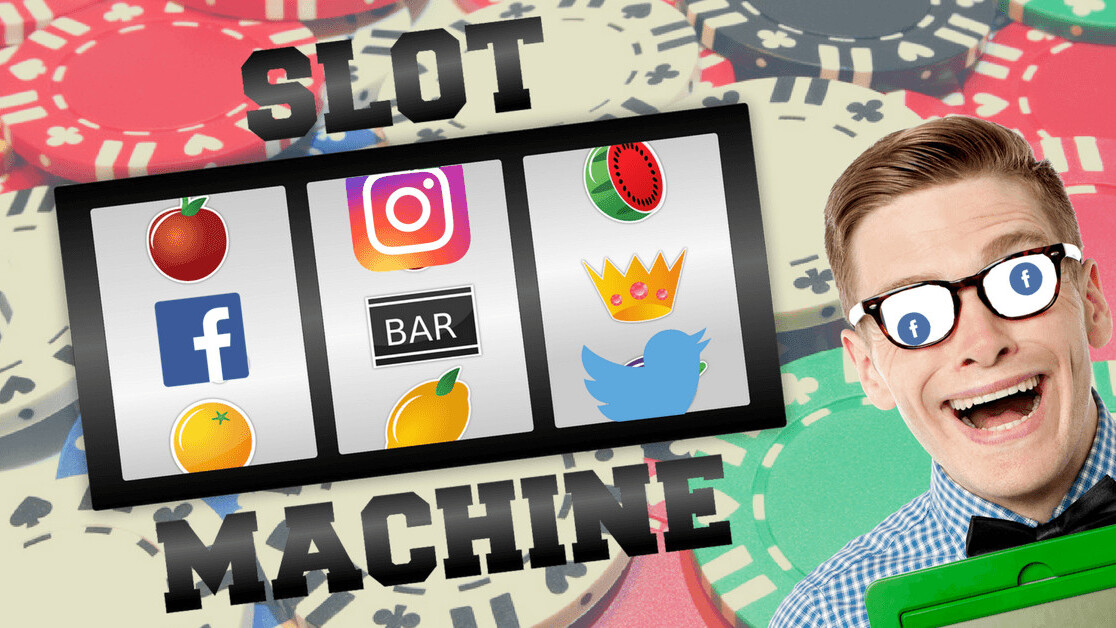
Slot machines are the most profitable part of any casino. Why? Because they’re designed to be addictive.
When users play with slot machines, they’re risking their own money, and if they aren’t careful, they could land in a heap of debt, sometimes without even realizing it; accordingly, slot machines are heavily regulated (usually by state in the United States) to carefully control the odds of payout, and how they can be played.
But once a psychological phenomenon is discovered and exploited, it rarely stays in just one place for long. Studying the design and effectiveness of slot machines and other forms of gambling, tech giants in the social media space have started to refine their own designs, making changes to maximize a different kind of income (advertising).
In the United States, we’re very careful to make sure users aren’t exploited for their money, but shouldn’t we care even more about people being exploited for their time and attention? Especially after the whole Facebook fiasco. The loss of money can interfere with someone’s livelihood, but the loss of attention and control in one’s life can interfere with someone’s psychology, family, and productivity just as much.
So why aren’t we paying as much attention to these borderline abusive tactics, as they’re applied to social apps?
The science of digital addiction
Let’s break down some of the key features that make a slot machine addictive:
- The zone — Slot machines aren’t designed to be a fleeting distraction that occasionally pays off; they’re designed to suck you into the “zone” so you keep playing indefinitely.
- Positive reinforcement — Though machines are designed to take more money than they pay out, they do pay out in regular intervals; as long as you keep playing, you’ll eventually get something back (even if it’s less than what you put in), keeping the positive reinforcement cycle strong.
- No dry spells — Machines never let you play for too long without getting some kind of win. If you lose consistently, you wouldn’t keep playing.
- Solitude — Natasha Dow Schull, author of Addiction by Design: Machine Gambling in Las Vegas also notes the solitary nature of the activity as a contributor to ongoing play. Slot machines are played by one person, by themselves, so no one else is around to pull you away or distract you.
- Speed — Another factor Schull points out is the speed of play; modern machines allow you to push a button and play hundreds of games in a sitting, blinding you to how much you’ve spent.
- Constant play — Machines also don’t allow breaks or stopping points that make it convenient to leave; they want you on the machine for as long as possible.
Social media apps work largely the same way, except their goal is to keep you in the app for as long as possible, rather than taking your money. Compare:
- The zone — Bright designs and red notification bubbles are made to capture our attention and keep our focus on the app for as long as possible.
- Positive reinforcement — Each notification we get could give us a social reward, such as a notification that you were tagged in a photo, that someone liked your photo, or that you received a message from a friend.
- No dry spells — Social apps always make sure you have some notifications waiting for you, even if they aren’t significant. If you opened your app and found nothing interesting every time, eventually you’d stop using it.
- Solitude — Though social media apps are designed to connect you to others, you mostly use them when you’re alone.
- Speed — There’s always something new waiting for you, since there’s a constant influx of content from millions of sources.
- Constant play — Most social apps support infinite scrolling, allowing you to keep refreshing content indefinitely, with no clear stopping points or cues to end your task.
Notice the similarities? Tech companies are allowed free reign of the same tactics designed to deprive people of money, but instead, they use them to deprive people of something far more valuable: their time and attention.
Regulations
Social media undeniably has benefits, allowing people to connect with each other across vast distances, and hastening the spread of important information. But chances are, you already spend more time on social media than you’d like, and you know at least one person wasting their life away on an app instead of enjoying it. If we’re to compensate for these addictive behaviors and improve our collective mental health, we need to find some way to keep these tech practices in check.
Let’s look at some of the possibilities:
- Usage limitations — For starters, there could be a limitation on how much content an app can provide someone within a specific window of time. Most video game companies already offer explicit warnings to take a 10 to 15 minute break every hour of playing; social apps could at least be required to recommend this limitation to users, especially with the appeal of the infinite scroll feature.
- Design limitations — Though admittedly unlikely, it’s possible that regulators could impose limits on how an app is designed, such as banning the use of bright red for notifications.
- Full disclosures — The most likely regulation would be a full disclosure about the potential effects of prolonged social media use, and how the app is designed to get and hold your attention as long as possible. Once armed with the information, users would be completely free to use the app however they want.
Of course, there are some major obstacles:
- Provable effects — It’s easy to show how a compulsive gambler could lose a fortune on a slot machine in an afternoon. It’s much harder to prove a causal link between long-term social media use and mood disorders, or lost productivity. Without objective evidence, regulators would be hard-pressed to act.
- Locality — Slot machines are regulated differently depending on what state you’re in, but social media apps are available globally. If we attempt to regulate social media apps the same way we do gambling devices, we’ll encounter significant geographic hurdles.
- Innovation speed — Considering the pace at which social media develops, the FCC wouldn’t be able to act quickly enough to respond to every dangerous feature. By the time you corrected or changed one questionable design feature, social media innovators would come up with another one to replace it.
There’s no denying the haunting similarities between social media apps and slot machines, but right now, it seems unlikely that lawmakers will take any similar regulatory action against them. For now, if you want to fight back against the addictive allure of social media apps, your best bet is to set strict time limits for your usage, convert your device to display in grayscale, or just uninstall your social media apps and be done with them.
Get the TNW newsletter
Get the most important tech news in your inbox each week.





